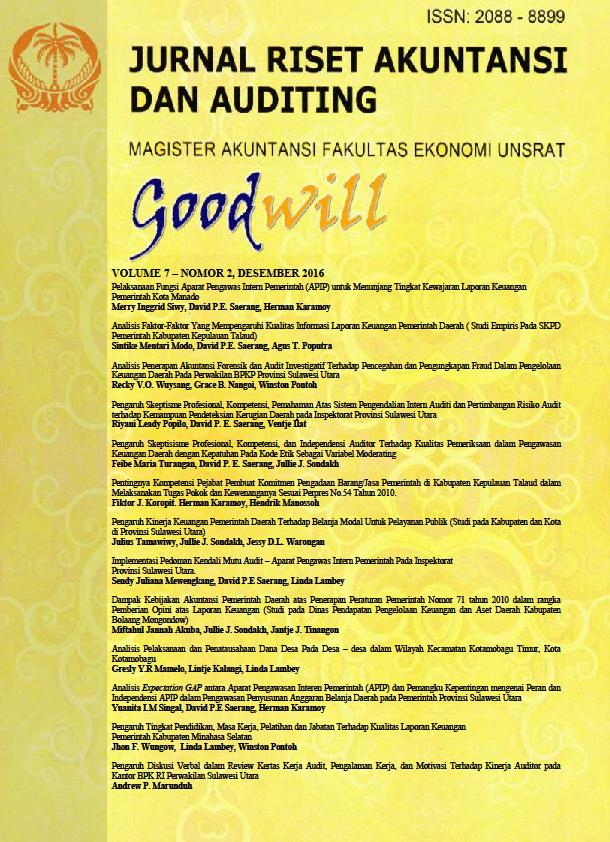DAMPAK KEBIJAKAN AKUNTANSI PEMERINTAH DAERAH ATAS PENERAPAN PERATURAN PEMERINTAH NOMOR 71 TAHUN 2010 DALAM RANGKA PEMBERIAN OPINI ATAS LAPORAN KEUANGAN (Studi Kasus pada Dinas Pendapatan Pengelolaan Keuangan dan Aset Daerah Kabupaten Bolaang Mongondow)
DOI:
https://doi.org/10.35800/jjs.v7i2.13557Abstract
The Implementation Government Regulation number 71 year 0f 2010 about Accrual Based Accounting Standard and The Indonesian Ministry Internal Affairs number 64 year of 2013 about Accounting Policies obligation impact for Local Government to spell the Financial Statements Accounts completely cosinst of presentation, disclosures, measurement, recognition, also used methods in Financial Statements. The Indonesian Ministry Internal Affairs number 64 year of 2013 rules the accounting entity is SKPD must be reported the Financial Statement based accrual to reported entity (DPPKAD) and than report to the BPK. This study aims to determine the extent to which the Accrual Accounting Policies implementation and also to reveal the Problems which in DPPKAD Bolaang Mongondow Regency.
Bolaang Mongondow Regency through DPPKAD has outlined its accounting policies in accordance with the legislation in force through legislation regent Bolaang Mongondow number 12 year of 2014 on accounting policies. Data obtained from the DPPKAD show of 52 SKPD in Bolaang Mongondow Regency, only 6 SKPD reported financial statement to DPPKAD as the reporting entity. The results indicate that the human resources, personal transfers, SPIP weakness, understanding the rules, lack of coordination and leadership are the most decisive factors in the implementation of accounting policies in DPPKAD Bolaang Mongondow District. Then, it unveil a major constraint PPKAD Bolaang Mongondow District offices in describing the accrual-based accounting policies as a key condition of local government financial reporting to the audit board.
Keywords       : Human resources limitations, high number of personal transfers, SPIP weakness, understanding the rules, lack of coordination and leadership

